On January 24, 2024, several members of Ayuda’s team and one of our incredible clients testified before the D.C. Council’s Committee on Judiciary & Public Safety to share how the Office of Victim Services and Justice Grants funding has supported immigrant survivors. Full copies of Ayuda’s oral testimony as prepared are available below. Click to jump to testimony:
- Diana Fitz, Senior Case Manager
- Brittany*, Ayuda Client
- Tatiana Santos, Language Access Coordinator
- Marilyn Lovo, Senior Language Access Manager
Diana Fitz, Senior Case Manager
Good afternoon and thank you, Chairperson Pinto and members of the Committee, for the opportunity to testify today. My name is Diana Fitz and I am a Senior Case Manager at Ayuda.
Ayuda has been serving immigrant communities for 50 years. Ayuda offers a full range of social services, immigration, family law, and consumer fraud assistance, as well as language access support for low-income immigrants from anywhere in the world. Ayuda’s clients includes survivors of human trafficking, domestic violence, sexual assault, stalking and other violent crimes.
My testimony today will focus on the key role that the Office of Victim Services and Justice Grants (OVSJG), plays in ensuring that immigrant victims of crime receive culturally competent services. Last fiscal year, through the VOCA grant, Ayuda provided holistic, wrap-around legal and social services to 240 victims of crime in the District. Additionally, in FY23, through OVSJG VAWA STOP funding, Ayuda’s Domestic Violence, Sexual Assault, and Stalking Program provided legal services to 175 immigrant victims and case management services to 130 immigrant victims.
Immigrant victims are often unable to access victim services due to fear of the criminal justice system, Limited English Proficiency, lack of knowledge about their legal rights and available services, and transportation barriers. With OVSJG funding, Ayuda ensures that the District’s immigrant crime victims have access to low-barrier, culturally specific, supportive services. Ayuda’s legal services include advice, counsel, and extended representation in immigration matters relating to victims in their restoration. Our social services consists of wrap-around case management services that help survivors achieve their unique goals and work through trauma. Case management services include: emotional support; crisis intervention; safety planning; food assistance; diapers and other infant and child needs assistance; criminal justice and legal advocacy and accompaniment; financial, educational and employment counseling referrals; housing advocacy and support; emergency financial assistance; and a variety of information and referral services to meet specific needs.
With the rise of crime in the District, the continuing economic impacts of inflation, and the increase in newly arrived migrants (many of whom are victims of crime), Ayuda anticipates that the demand for low-barrier legal and social services for immigrant survivors will continue growing. Although we serve hundreds of survivors annually in DC, we must refer many survivors to other organizations due to funding limitations and capacity constraints. We receive multiple phone calls every day from individuals seeking assistance who we unfortunately lack capacity to serve. Many partner organizations also face similar challenges.
We remain committed to helping meet the increased demand for legal and social services during this time, but our ability to do so depends on the ongoing support of OVSJG. To ensure that immigrant survivors can build safe and secure lives, we urge the Committee to continue to support the critical role that OVSJG plays in the funding of core services for victims of crime.
I am joined today by Brittany*, one of my clients served through the OVSJG VOCA grant. I am proud of all that Brittany has accomplished and happy that she is here to share her story. Thank you for your time today.
Brittany, Ayuda Client
*Editorial Note: Brittany, whose name has been changed to protect her identity, provided her testimony in Spanish with interpretation by a qualified interpreter. Below is a transcript of the interpreter’s translation.
My name is Brittany. I am 24 years old and I am from El Salvador. I started with Ayuda a year and a half ago and was referred by the Next Steps School because I was a victim of domestic violence.
When I arrived, I met my case manager – I was very scared of talking, but she made me feel welcome and comfortable in the space that we shared.
She put me through yoga and relaxation activities that helped us to bond a little more. I told her about my passions, and she enrolled me in cosmetics courses where I was able to learn about cutting hair and doing extensions.
Ayuda also helped me with housing in The District because I was not able to afford it back then. After I took all the in-person classes for cutting hair, I was able to graduate with a microshading certification.
My dream is to have my own salon, open my own business, and to help other girls break their silence. Thank you so much to Diana Fitz, who always gives confidence to me and other survivors of domestic violence. My main goal, and Ayuda’s as well, is to allow people to break through the barrier of fear and silence. I really appreciate the opportunity to share the positive impact Ayuda has had on me.
Tatiana Santos, Language Access Coordinator
Thank you, Chair Pinto and members of the council. My name is Tatiana Santos, I am a language access coordinator at Ayuda. I greatly appreciate the opportunity to testify to the Committee on the Judiciary regarding the funding provided to the Office of Victim Services and Justice Grants. Ayuda is a nonprofit organization that helps immigrants from across the world overcome obstacles to succeed and thrive in the United States. Our services include legal representation, therapy, case management, advocacy, and language access.
Today, we are urging the Council to continue supporting the Office of Victim Services and Justice in its work to serve marginalized communities.
One of the projects funded by OVSJG is Ayuda’s Victim Services Interpreter Bank (also known as VSIB). VSIB launched nearly ten years ago and reaches some of DC’s most vulnerable residents by breaking down the language barrier that stands in the way of accessing help for Limited English Proficient and Deaf and Hard of Hearing individuals. This is achieved through providing access to local, specially trained interpreters, on-demand telephonic interpretation, and document translations. VSIB serves victims throughout the city, helping advocates in a variety of ways, whether by providing interpretation for client intakes, ongoing one-on-one therapy sessions for domestic violence and trauma victims, forensic interviews and exams for sexual assault victims, and much more.
Each time a victim receives culturally appropriate services in their language, faith in the system is restored. That victim will relay to members of their community that help is available, even for those who cannot speak English.
In 10 years, VSIB has grown to serve nearly 40 different organizations that provide victim services. There are over 90 specially trained interpreters accepting VSIB assignments in about 30 different languages, including Spanish, Amharic, French, Chinese, Arabic, and American Sign Language. During the 2023 fiscal year, VSIB provided local, specially trained interpreters on 264 occasions and on-demand telephonic interpretation in 1,715 instances. Most requests were for interpreters working in Spanish, Amharic, Arabic, American Sign Language, and Dari. VSIB also arranged for the translation of 34 documents. These services were free of charge for victim service providers because of funding from OVSJG.
VSIB is clearly meeting an urgent need as recent census data for the District indicates that nearly 13.3% of DC’s population are foreign born. Significantly, 5% of the District’s population is limited-English proficient (LEP), speaking a broad range of languages. The District is also home to one of the largest per capita populations of Deaf and Hard-of-Hearing people in the U.S, many of whom communicate in sign language.
As a member organization of the DC Coalition Against Domestic Violence, we join the Coalition’s request for increased funding for providers offering culturally specific services to respond to the ever-growing and ongoing needs of crime victims, including funding for language access services which are vital to the provision of victim services.
Again, we thank Chair Pinto for holding this hearing and the Office of Victim Services and Justice Grants for their commitment to supporting victims and survivors in our city and we request continued support.
Marilyn Lovo, Language Access Director
My name is Marilyn Lovo, and I am the Language Access Director at Ayuda. I would like to thank Chair Pinto and the Committee for allowing Ayuda to testify on the vital role that the Access to Justice Initiative plays in bolstering the District’s safety net.
Earlier, my colleague, Tatiana Cherry Santos, spoke about one of the Initiative’s projects, Ayuda’s Victim Services Interpreter Bank. I will be speaking about another one of its projects, Ayuda’s Community Legal Interpreter Bank.
When the DC Council passed legislation creating the Initiative, it included a shared legal interpreter bank as an essential component. For 17 years, Ayuda has administered that bank and become a trusted language access expert and resource.
CLIB is a unique national model that has been extremely effective in creating equitable access to civil legal services for
limited English proficient and Deaf individuals. Organizations across the country contact Ayuda looking to replicate CLIB. Recently, the New York City Council awarded a grant to a Language Access Collaborative to launch a project modeled after CLIB. In DC, we worked with the Office of Victim Services and Justice Grants to replicate CLIB in the victim services setting, resulting in the Victim Services Interpreter Bank.
CLIB uses an original curriculum, the “Language of Justice,” to train professional interpreters to work with lawyers and their clients in out-of-court settings. We then pay these specially trained interpreters to accept both on-site and remote requests from 44 nonprofits. In addition, we provide nonprofits with access to on-demand telephonic interpretation and document translation. Our services are free of cost, thanks to the grant funding we receive, including an award from the Initiative.
CLIB has grown to serve 44 different organizations. The 117 interpreters who accept assignments work in 25 different languages. During the last fiscal year, CLIB provided specially trained interpreters on more than 400 occasions. CLIB also provided on-demand telephonic interpretation in more than 7,500 instances and arranged for the translation of 440 documents. We also delivered our “Language of Justice” training to 15 American Sign Language interpreters.
We regularly train legal services staff, not only on language access, best practices and navigating CLIB, but on complicated technological solutions, including hosting remote meetings in which multiple languages will be used on separate audio channels. When simultaneous interpretation is requested for on-site assignments, we provide simultaneous equipment, free of cost to the nonprofit. We also maintain an online scheduling system which makes it possible for us to efficiently process the high volume of requests.
We go to great lengths to ensure that beneficiaries have positive experiences with CLIB. After 17 years of working with the legal services community to ensure equity for limited English proficient and Deaf individuals, CLIB has normalized serving clients in languages other than English.
New funding for the Access to Justice Initiative in the last few years has allowed CLIB to realize its purpose more fully. The need for language access in legal services has never been greater and continues to grow. We must build on our progress to avoid abandoning linguistically isolated communities in need of legal services.
We are grateful to OVSJG and the DC Bar Foundation, as the grantors for the Access to Justice Initiative, for the vital role they play in ensuring equal access to justice for all DC residents.

